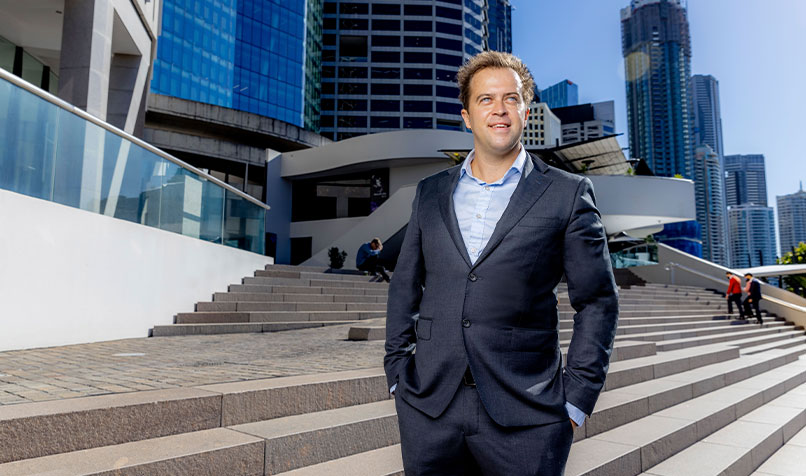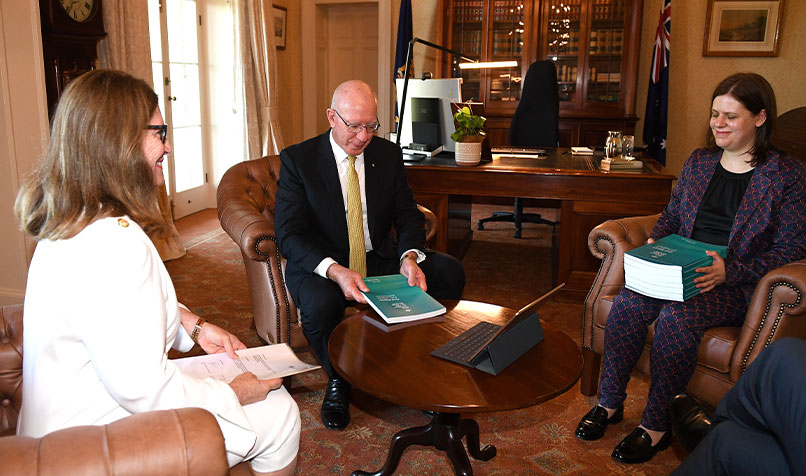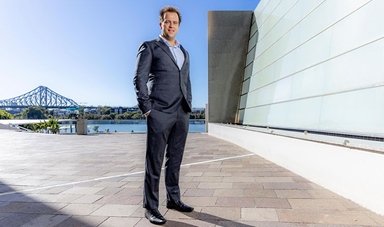Loading component...
At a glance
- Andrew Raworth CPA is senior consulting manager hospital and healthcare at information technology and services company Rohling International.
- Raworth's former role was with aged care provider Regis Aged Care, where he worked for more than a decade.
- Raworth looks forward to being part of the changes taking place in aged care following recommendations from The Royal Commission into Aged Care Quality and Safety.
It is not yet clear how Australia’s aged care industry will change after the recent Royal Commission into the sector, but whatever happens, organisations should be getting ready now, says Andrew Raworth CPA.
According to Raworth, senior consulting manager hospital and healthcare at information technology and services company Rohling International, “We’re about to embark on a whole new industry, business and funding model in aged care that will transform every aspect of the aged care industry, almost. It’s a massive transformation over five years.
“Whatever the stance the government takes, there has to be significant change. And I think providers shouldn’t be ‘waiting and seeing’. They should be trying to act and start improving now.”
The Royal Commission’s final report, issued on 1 March 2021, attributes many of the aged care system’s failings to funding cuts by successive governments. It also identifies a need for a philosophical shift that puts people in care at the centre of quality and safety regulation.
Raworth says this is a huge opportunity for the industry.
“If you’ve got the resident and the client at the centre of everything – a very client-centred focus to your business – then all the processes and the systems are all centred to focus on achieving that great care outcome for that resident,” he says.
Changes in aged care
In his role as a consultant, Raworth is well positioned to effect change in the aged care industry, in advising aged care organisations on how to bring people, processes and systems together to help operate more efficiently and effectively.
He runs business process workshops for clients, where they review the “as-is” state of their processes and business targets. Drawing on analytics, they outline what best practice targets would look like and develop recommendations and a roadmap for improvement.
For instance, Rohling International might look at an organisation’s end-of-month billing and reporting processes. In some organisations it can take 10 days for the finance team to get their hands on the numbers in order to review them and take appropriate action.
Raworth can help them streamline the process to access the numbers in two or three days instead.
Together, he and the business might look into the debtor management processes, including the number of debtors and the size and efficiency of the accounts receivable team.
Often at the root of problems is the quality of the organisation’s data. For a lot of his clients, Raworth says, the reason why the business might be having high debt is the absence of “that one source of truth of information on your clients” that helps manage debts.
The root of the problem

Fixing the underlying problems often involves going right to the beginning of the process – onboarding aged care residents when they enter the system. Raworth likes to think about an aged care business’s processes in two distinct ways, as an employee journey, of course, but also as a client journey.
Raworth analyses the process of a resident’s arrival, their stay and then their departure from an aged care facility, and looks at the processes that support each stage. He explains that this puts the client the heart of the process and “really makes the client and the resident’s family have a great experience”.
Only after carefully mapping the processes and identifying ways they can be improved from the client’s point of view does Raworth move on to the supporting IT and business systems.
“A lot of companies will think purchasing the best IT software will solve their problems. No, it won’t,” he says.
“Sometimes it can lead to a very poor investment if you haven’t worked out what your as-is business processes are and then what your target-state business processes are.”
Steep learning curves
Before joining Rohling International in April 2019, Raworth spent more than a decade at Regis Aged Care, an ASX-listed aged care provider. He joined the company as a business analyst, but his responsibilities grew with the business, which went from managing 18 aged care facilities to more than 65.
Before he left Regis, Raworth was corporate finance manager, with a team of about 25. He was also heading up the national funding management processes and enterprise resource planning systems, which led to some project management work and, effectively, overseeing the implementation of funding legislation changes over his tenure.
When he joined Rohling International as a consultant, the learning curve was steep – particularly when it came to technology – but the opportunities were many and varied.
Looking back, Raworth says coming from a finance background rather than an IT background has been a help in his consulting work. That’s because when Raworth finds himself talking to CFOs and other senior finance executives, he can speak their language.
"It’s about providing that quality of care and the quality of outcomes. Without having great systems and quality processes across all layers of your organisation, it doesn’t support that quality."
Likewise, his background at Regis equipped him with the tools and knowledge to help senior leaders drive significant change.
“I’ve gone through these changes with one of the largest providers in Australia,” he says.
Organisational change is always hard, and aged care is no exception. Most care staff and management already have their hands full with their day-to-day tasks, and identifying and implementing process changes are added challenges. However, these changes are critical for the survival of the sector and the aged care residents’ quality of life.
“Obviously you want to do something in a very efficient and effective manner, but it’s about providing that quality of care and the quality of outcomes.
“Without having great systems and quality processes across all layers of your organisation, it doesn’t support that quality,” he says.
Embracing change

As an outsider, Raworth says, it is not always easy to drive change inside an organisation, but he enjoys the challenge, as well as the variety involved in working with many different aged care providers.
“What I’ve really enjoyed is, now I get to see how a lot of other companies and organisations do things and do things differently,” he says. “I love just seeing change and seeing process improvement.”
Raworth is looking forward to seeing what positive change will come out of the Royal Commission’s recommendations. However, he says, “aged care organisations need to start now. They can’t wait.”
The first step is to carefully review the recommendations and begin thinking through ways to respond to them meaningfully and effectively.
“You need to really plan well and set up the right governance framework internally to manage all these process improvement and transformation changes that...we’re going to need to go through in the next five years,” he says.
The challenge is great, but Raworth has high hopes. “I think the change is exciting, and I’m really hoping the government gets on board with a lot of these changes and recommendations,” he says.

